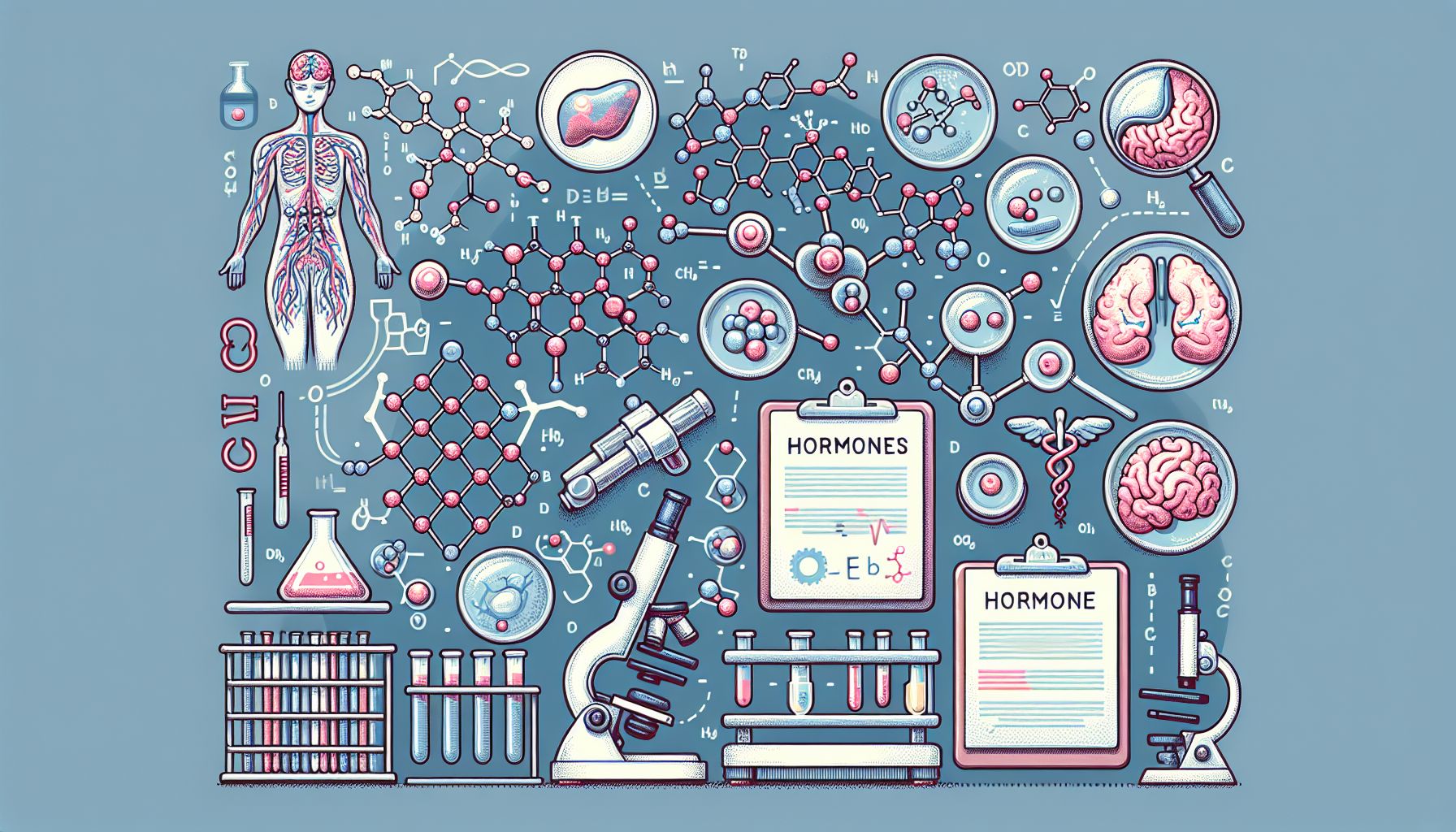
What Are Hormones?
Hormones are chemical messengers produced by glands in the endocrine system. They travel through the bloodstream to tissues and organs, regulating numerous bodily functions such as metabolism, growth, mood, and reproduction. Hormones are critical to maintaining homeostasis, keeping our bodies in balance.
Types of Hormones and Their Functions
Hormones can be classified into several types based on their function and the glands they originate from. Here’s an overview:
Pituitary Gland Hormones
– Growth Hormone (GH): Stimulates growth of bones and tissues.
– Thyroid-Stimulating Hormone (TSH): Triggers the thyroid gland to release hormones that regulate metabolism.
– Adrenocorticotropic Hormone (ACTH): Stimulates the adrenal glands to produce cortisol, a hormone involved in stress response.
Thyroid Gland Hormones
– Thyroxine (T4) and Triiodothyronine (T3): Regulate metabolism, energy generation, and mood.
Adrenal Gland Hormones
– Cortisol: Helps control blood sugar levels, regulate metabolism, and reduce inflammation.
– Adrenaline (Epinephrine): Increases heart rate and energy levels in response to stress.
Pancreatic Hormones
– Insulin: Regulates blood glucose levels by facilitating the uptake of glucose into cells.
– Glucagon: Works with insulin to maintain blood sugar balance.
How Hormones Work
Hormones work by binding to specific receptors on the surface of or inside target cells. This binding triggers a response within the cell, such as altering gene expression or activating enzymes, leading to the desired effect. The mechanism of action can vary significantly between different hormones.
Common Hormonal Imbalances
Hormonal imbalances can lead to a variety of health issues. Some common conditions include:
– Hypothyroidism: Caused by insufficient thyroid hormone production, leading to fatigue, weight gain, and depression.
– Hyperthyroidism: Excessive thyroid hormone production, causing weight loss, rapid heartbeat, and anxiety.
– Diabetes Mellitus: Results from inadequate insulin production or response, leading to high blood sugar levels.
Potential Side Effects of Hormone Therapy
Hormone therapies, such as those used in hormone replacement therapy (HRT) or contraceptives, can have side effects, including:
– Weight gain
– Mood swings
– Increased risk of certain cancers
Consult with a healthcare provider before starting any hormone therapy to understand potential risks and benefits.
Expert Opinions
Dr. Jane Smith, an endocrinologist, notes, “Hormones are incredibly powerful substances that affect almost every aspect of our health. Understanding how they work and maintaining their balance is crucial for overall well-being.”
Recommendations for Hormone Use
The correct use and dosage of hormones are essential for effective treatment and minimizing side effects. Always follow the guidance of a healthcare professional when using hormone therapies.
General Dosage Guidelines
– Thyroid Hormones (e.g., Levothyroxine): Typically prescribed in micrograms and adjusted based on blood tests.
– Insulin: Dosage varies significantly based on individual needs, typically measured in units.
– Hormone Replacement Therapy: Often starts at the lowest effective dose to manage menopausal symptoms.
Further Information and Resources
For more detailed information on hormones and related treatments, consider consulting reputable sources such as the National Institutes of Health (NIH) or the Endocrine Society. You can also purchase hormonal treatments and supplements from our recommended site: Your Trusted Hormone Source.
By understanding hormones and their functions, you can better appreciate the complex systems that sustain your health and well-being. Always consult with healthcare professionals before starting or altering any hormonal treatment.
